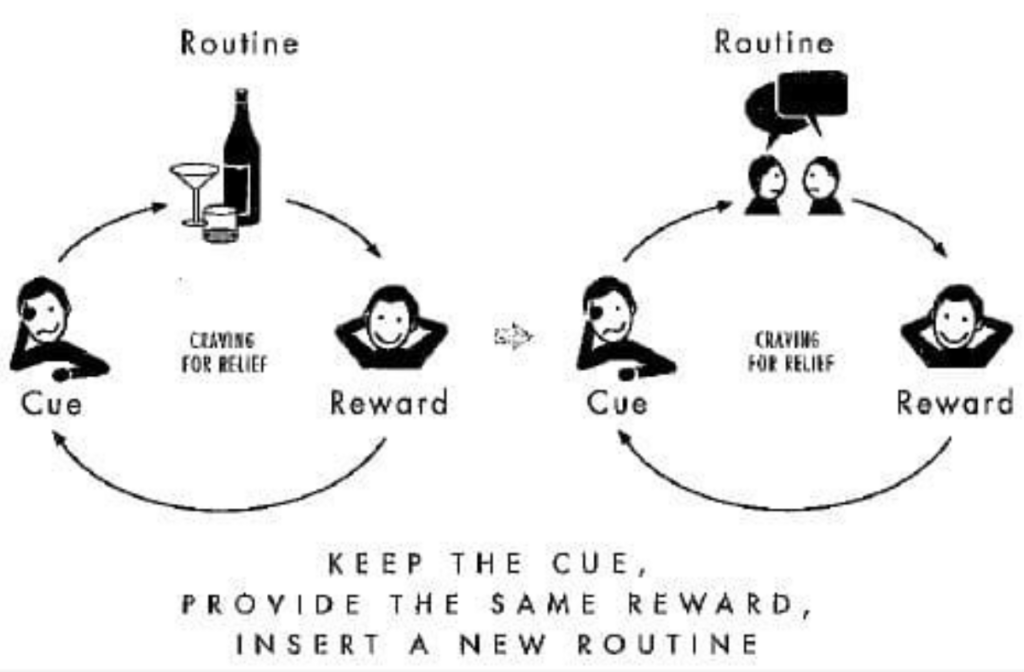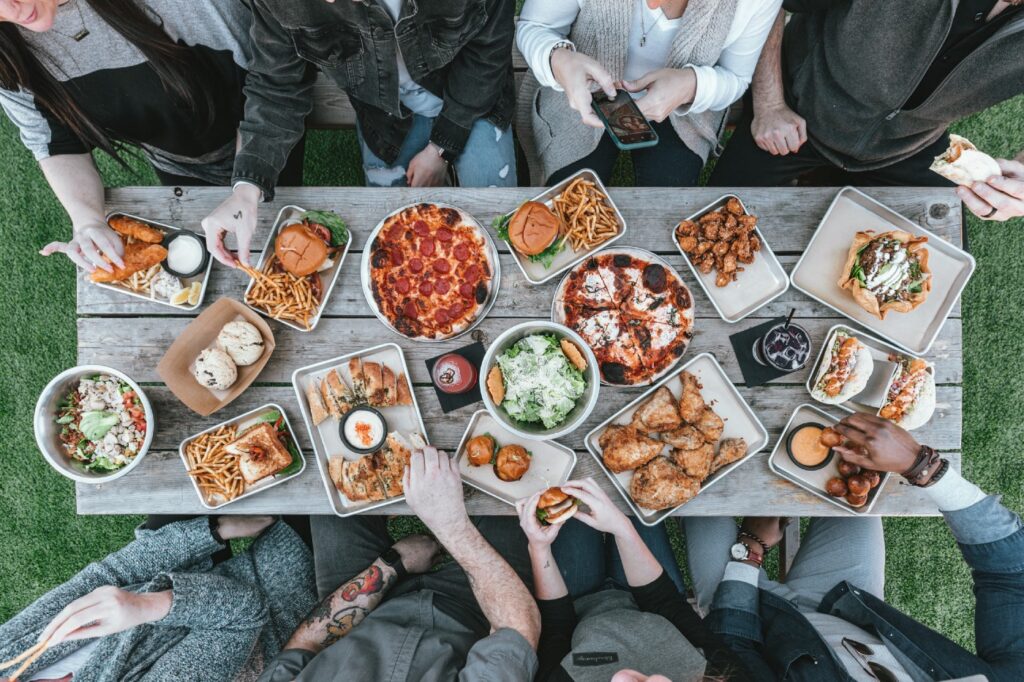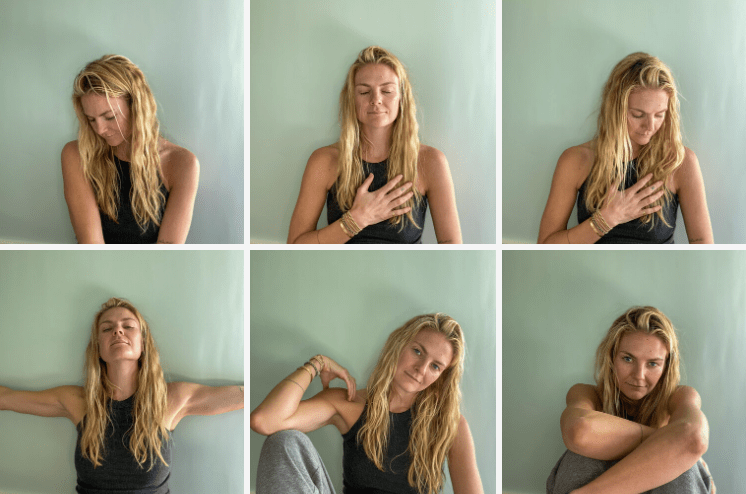Photo source: Spencer Davis on Unsplash
How to harness awareness and personal responsibility so that you can honor your body, align your health and up-level your eating.
The supply of nutrition information available to us today is boundless and growing. But with more knowledge than ever before, so many of us still struggle to implement what we know. Like many, I regularly lament over why this is. Especially when it seems like everyone today is an expert.
The burning question, therefore, remains to be: why can’t we put what we know into practice? Is it because we actually just don’t care? Or is it because we lack the necessary tools, techniques and support to successfully integrate what we know?
I feel strongly for the latter. It’s not that we don’t care or know what to do. It’s that we don’t know how to do it and we don’t live in an environment that encourages us to make healthy choices. Not to mention, life is hard and food is satisfying.
That’s where awareness and intention come in.
Notice I didn’t say force, shame, guilt or restriction. None of those approaches ever stick. They also create unhealthy mental and emotional associations around food and diet, which in turn makes us sick.
For example, you can eat vegetables every day and as a result, be physically healthy. But if you force yourself to eat vegetables out of punishment, or restriction, you will be physically “healthy” but mentally and emotionally less so. Does that make sense?
Your friend, on the other hand, could eat the exact same diet but do so out of awareness, loving kindness and self-preservation. As a result, he, she or they would be physically, mentally and emotionally “healthy.”
Same diet, different intention. Do you see the distinction?
Hint: it’s all in your head.
Here’s how to put some of this into practice:
Think positively about what you eat.
For all of us, diet — and more importantly, how we perceive diet — is the single most pervasive factor that determines the quality of our health. This means that what we eat is matters and how we feel about what we eat matters, too. So, don’t eat when you are sad, mad or upset.
No, seriously… Recent studies show that the sympathetic nervous system is involved in helping the body decide what is stored as fat and what is used as energy. In laymen’s terms: eating in a stressed out state or while thinking negative thoughts sends a signal that something is wrong, which causes the body to store food as fat. On the other hand, eating in a parasympathetic state sends signals that everything is okay, which in turn directs systems to use food as energy.
Shift your focus from how you want to look to how you want to feel.
Typically, when we think about diet, we mainly think in terms of the physical. We don’t spend too much time (if any at all) on the mental and emotional aspects around the transformation required to create long-lasting sustainable change. Instead, we put all of our focus and energy towards a goal weight and how happy and perfect our lives will be when we fit into a size x jeans. Unfortunately, being thin won’t make you happy (shocker) but being happy may very well help you be thin.
So, the more you focus on how you want to feel, the easier this all will be. If physical change is a goal you have, it will come with consistency of effort. Just remember, there are plenty of thin and fit people out there who are absolutely miserable inside.
Thinner is only better if you’re also happier and more at peace.
Only eat when you’re hungry.
Get into the habit of asking yourself whether or not you are in fact hungry before you eat. If the answer is no, honor that. Mind you, this will likely take some practice. Be kind to yourself. Eat when you’re hungry, don’t eat when you’re not and stop before you’re full.
Don’t reward yourself with food.
We need food to survive. This means as humans, we are always deserving of calories and food, which means that food is not a reward but a necessity. Remember this and break the habit of rewarding yourself with indulgent foods by cultivating a healthy reward system unrelated to food and eating.
Here are a few great examples of healthy non food-related rewards: take yourself to yoga, go on a walk, enjoy a long shower, get a massage, get your nails done, sit outside or treat yourself to a nice new item of clothing, art or household decor.
If none of the aforementioned speak to you, ask yourself: what is a non food-related reward that would inspire and incentivize me?
Then, do that.
Don’t comfort yourself with food.
Unhealthy food is the most socially acceptable dopamine hit. When we feel sad, food is comforting, convenient and cheap. So, the next time you find yourself avoiding your feelings and coping with food, see if you can hold space for whatever is coming up. Start to notice the impulse to self-soothe with food and instead of acting on it, see if you can observe it. You can even say to yourself, I’m feeling to impulse to ignore this feeling and distract myself with food… After which maybe you DO decide to eat following a few minutes of quiet breath and observation. Or, maybe you don’t.
The first step is to create space between the feelings and the response to comfort with food. Once you’ve got that down, the second step is to intercept the chain reaction and create a new strategy that gives you the same intended result (see below).

Eat for how you want to feel after the meal.
The goal is not to eat foods that make you feel heavy, tired or bedridden. So, don’t eat solely for your tastebuds. Instead of ordering the most indulgent thing on the menu, ask yourself what would taste good AND also leave you feeling energized and alive.
Remember, you want to feel good first and foremost. Eat like it.
Don’t categorizing meals as “cheat meals.”
As long as you continue to perpetuate the “cheat meal” narrative, you will continue to see food — and yourself — as either “good” or “bad.”
If you want a slice of pizza, have it. Don’t feel guilty and don’t call it a cheat meal. You are not cheating on anything and you are not bad. In reality, it’s made-up associations of guilt and shame around “good” and “bad” foods that create these unhelpful narratives.
So, if you want to have an aware and intentional relationship with food, eat the pizza, ditch the story.
Don’t worry about what other people eat.
For better and for worse, you will only ever be you in your body and I will only ever be me in mine. Therefore, it doesn’t matter, what or how much anyone else chooses to eat. Pay attention to your hunger cues and how your body feels before and after certain foods. Eat foods that make you feel good and stop eating those that don’t.
Remember, every body is different and yours is entirely unique.
Keep your eyes on your plate.
Want to learn more about the habits of mindfulness, health and nutrition?
Join my mailing list for free monthly musings on the latest in health, happiness and life-changing habits! You can also learn more about my approach and offerings through my website.
Any health-related information published here is not intended to be a substitute for professional medical advice, diagnosis, or treatment.
Humbl Habits is a participant in the Amazon Services LLC Associates Program, an affiliate advertising program designed to provide a means for sites to earn advertising fees by advertising and linking to amazon.com. Any clickable link to amazon.com on the site is an affiliate link.
connection is our greatest currency - follow @humblhabits for the latest in nutrition & mindfulness







